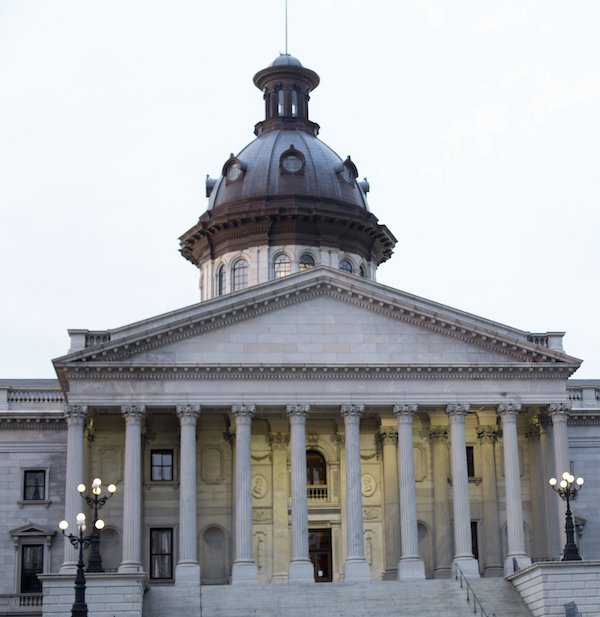
WASHINGTON — A South Carolina abortion measure introduced by Republican legislators in January has received a lot of attention for saying the state’s homicide laws could apply to women who have abortions – meaning they could potentially face 30-year prison sentences or the death penalty.
The “South Carolina Prenatal Equal Protection Act,” would amend the state laws to redefine a person to include a fertilized egg or embryo that should be granted “equal protection under the homicide laws of the state.”
Nine of the initial 24 co-sponsors of the legislation withdrew their support of the bill by mid-March, saying their intent had not been to criminalize women for having abortions. The bill has been referred to the state House Judiciary Committee and has not been considered for the House floor.
Rep. Matt Leber, one of the first legislators to take back his support of the measure, told NBC News he couldn’t support the bill’s existing language, and he also felt it had no chance of passing.
“In its current form, I cannot keep my name on it,” Leber said. “I wouldn’t want to prosecute or charge women at all. That’s never been my philosophy on pro-life issues.”
On March 16, Rep. Brandon Guffey joined eight other legislators in taking his support off the bill.
In a Facebook post about it, he said: “Honestly, I did not read into the bill far enough to be aware that it included (the) death penalty. I personally believe that we must define when life begins and, from that point, protect it.”
He added: “I am pro-life, but that includes the life of the mother. I simply don’t want abortions to be used as a form of birth control, but I am not for taking the mother’s life should she have an abortion.”
Rep. Jordan Pace, a state legislator who has maintained his support of the bill, said media reports have exaggerated its death penalty aspect. He told a reporter that the likelihood of a woman who had an abortion being charged and facing the penalty of death was “infinitesimally small.”
Representative Nancy Mace, R- South Carolina, brought up the bill in a discussion on the House floor of Congress, where she said it was part of a “deeply disturbing” trend.
“To see this debate go to the dark places, the dark edges, where it has gone on both sides of the aisle, has been deeply disturbing to me as a woman, as a female legislator, as a mom, and as a victim of rape,” she said.
Mace said the debate about abortion should “balance the rights of women and … the right to life. But we aren’t having that conversation here in D.C. We aren’t having that conversation at home. We aren’t having that conversation with fellow state lawmakers.”
She also tweeted that it “isn’t pro-life to execute a woman who seeks an abortion after being raped.”
The South Carolina Catholic Conference, the public policy arm of the state’s Catholic bishops, does not have anything on their website about this new measure but instead highlights another piece of pro-life legislation in the state: the Human Life Protection Act, that would ban most elective abortions in South Carolina and revoke the medical licenses of doctors who perform them.
The bill passed in the House and now faces “an uphill battle in the Senate,” the conference said.
This legislation was also praised by South Carolina Citizens for Life, whose executive director, Holly Gatling, told OSV News that her organization is on record with 70 other right-to-life organizations “as opposing legislation that criminalizes women who have abortions.”
Last May, prior to the Supreme Court’s ruling in Dobbs v. Jackson Women’s Health Organization, South Carolina Citizens for Life joined dozens of national and state pro-life leaders in a letter to state lawmakers nationwide urging them to oppose criminalizing women in any upcoming abortion legislation.
The letter was also signed by Baltimore Archbishop William E. Lori, then-chairman of the Committee on Pro-Life Activities for the U.S. Conference of Catholic Bishops, and Jeanne Mancini, president of the March for Life Education and Defense Fund.
The letter did not mince words, stating: “As national and state pro-life organizations, representing tens of millions of pro-life men, women, and children across the country, let us be clear: We state unequivocally that we do not support any measure seeking to criminalize or punish women and we stand firmly opposed to includ(ing) such penalties in legislation.”
It noted that if the Supreme Court overturned Roe v. Wade and returned abortion policymaking back to state and federal legislators, it would be “a tremendous opportunity for states to create a durable policy that can stand the test of time. But in seizing that opportunity, we must ensure that the laws we advance to protect unborn children do not harm their mothers.”
The letter added: “We have been in this fight for decades — many of us have dedicated our lives to this cause. We understand better than anyone else the desire to punish the purveyors of abortion who act callously and without regard to the dignity of human life. But turning women who have abortions into criminals is not the way.”
